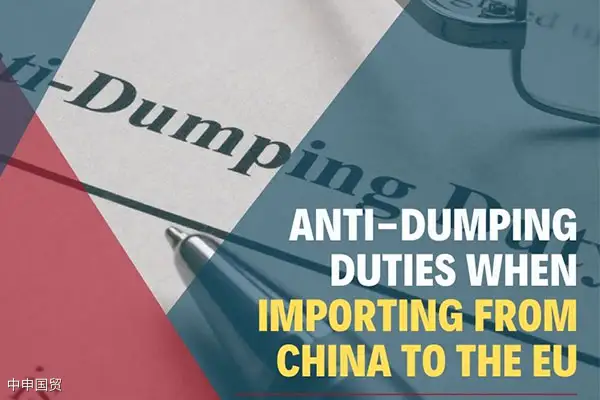- Shanghai Zhongshen International Trade Co., Ltd. - Two decades of trade agency expertise.
- Service Hotline: 139 1787 2118
Recently, the EU has imposed a high anti - dumping duty of up to 39.7% on titanium dioxide products exported to the EU. This high - level anti - dumping duty has had a significant impact on the export business and may seriously weaken the competitiveness of export enterprises in the EU market. Facing this challenge, the industry needs to quickly take effective countermeasures to ensure the protection of its own rights and interests within the legal framework and reduce economic losses. The following are detailed countermeasures and steps.

I. Question the rationality of the ruling basis
First of all, it is necessary to defend against the basis of the EUs anti - dumping ruling. Specifically, it can start from the following aspects:
Question the rationality of the citation of policy documents:It can fully clarify that the domestic policy documents cited by the EU have not actually interfered with the normal production and operation of enterprises, emphasizing the independence and autonomy of enterprises in international market behavior. This helps to weaken the EUs accusation of interference by Chinese domestic policies in the ruling and demonstrate the independence and compliance of enterprises in market operations.
Question the fairness of the sampling process:In the anti - dumping investigation, the fairness of the sampling process is crucial. The EU can be urged to disclose the specific sources and processes of sampling to ensure that the sampling process is not affected by biases or other adverse factors. If there are problems in the sampling process, a re - evaluation of the sampling results can be requested, or more enterprises can be required to participate in the investigation to ensure the fairness of the results.
Break the logical chain of causality:Efforts should be made to prove that the low - price sales strategy of Chinese enterprises is not the decisive cause of the operational difficulties of EU titanium dioxide enterprises. By providing market data, industry reports, and other evidence, it can be demonstrated that the difficulties in the EU market may be caused by other factors, such as changes in global market supply and demand, competition within the EU, rather than the behavior of Chinese enterprises.
II. Flexibly adjust the defense strategy
Although the no - injury defense is a possible countermeasure, given the high difficulty of winning the lawsuit, it is necessary to consider flexibly adjusting the strategy to strive for a relatively low anti - dumping duty rate. This goal can be achieved through the following measures:
Seek a lower anti - dumping duty rate:Within the framework of the existing ruling, negotiations can be carried out with relevant EU departments to strive to reduce the finally determined anti - dumping duty rate to a lower level. This can not only reduce the economic burden but also help maintain a certain competitiveness in the EU market.
Obtain professional support:Proactive efforts should be made to seek the professional support of domestic and foreign lawyer teams. Through domestic lawyers, the requirements and goals of enterprises can be clearly conveyed; through foreign lawyers,應訴 materials can be fully prepared, and communication channels can be established with relevant EU departments. Various strategies such as lobbying, negotiation, and consultation can be used to strive for greater say and initiative.
III. Procedural countermeasures
In terms of procedures, close attention should be paid to the effective date of the EUs preliminary ruling announcement and corresponding actions should be taken within the specified time:
Submit case review opinions:After the EUs preliminary ruling announcement comes into effect, case review opinions should be submitted within 15 natural days. At this stage, questions can be raised about the EUs preliminary ruling, and supplementary evidence or legal arguments can be provided to support the claim.
Participate in the hearing:At the subsequent hearing, active participation should be ensured and discussions on the case facts and evidence should be carried out. By explaining the business model, market strategy, and actual situation in detail, it is possible to influence the final ruling result and obtain a more favorable ruling.
IV. Establish a long - term response mechanism
In addition to short - term defense and countermeasures, export enterprises should also consider establishing a long - term response mechanism to deal with possible similar challenges in the future:
Monitor the international trade environment:Regular monitoring of changes in the international trade environment, especially policy and regulatory changes in the export market, should be carried out. This can provide early warnings and avoid sudden encounters with similar anti - dumping investigations.
Adjust the market strategy:Based on the anti - dumping trends in the EU market, the market strategy can be considered for adjustment to diversify market risks. For example, increase exports to other regions and reduce dependence on the EU market.
Strengthen internal compliance management:Strengthen internal compliance management to ensure that all export behaviors meet the requirements of international trade regulations. This not only helps to reduce future trade risks but also enhances the reputation in the global market.
To respond to the EUs high - level anti - dumping duty preliminary ruling, a comprehensive layout and adjustment are required in terms of law, market strategy, and international cooperation. By questioning the ruling basis, adjusting the defense strategy, actively participating in procedural links, and establishing a long - term response mechanism, the legitimate rights and interests can be effectively safeguarded, the negative impact of the anti - dumping duty can be reduced, and the continuous competitiveness in the EU market can be ensured.
Related Recommendations
? 2025. All Rights Reserved. 滬ICP備2023007705號-2  PSB Record: Shanghai No.31011502009912
PSB Record: Shanghai No.31011502009912









